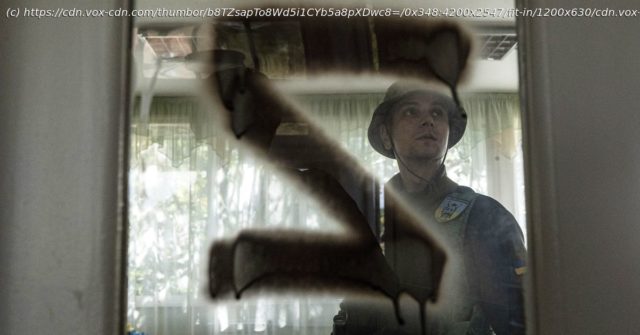The underdog made a comeback. Now, here’s what Ukraine needs to sustain its victories.
Ukraine’s counteroffensive against Russia is defying the odds, and it has sent Russian President Vladimir Putin to a new point of desperation: On Friday, he announced that Russia had, in an illegal move, annexed four occupied regions in Ukraine.
Earlier in the week he mobilized hundreds of thousands of Russians, as just as many Russians seem to be fleeing the country to avoid fighting in the conflict.
Over the weekend, Russian troops retreated from Lyman. Attention is now being focused on Ukrainian gains in Kherson, one of the regions that Putin had annexed.
But there are still big questions about where the war goes from here and what will shape the conflict this winter and onward. To understand them, I spoke with experts on Europe, Russia, and international security, and listened to European leaders speaking candidly on the sidelines of the United Nations General Assembly last week.
Three determining factors will play an outsized role in Ukraine’s future: support from America and European partners, the risks that Putin is willing to take, and the conflicting definitions of what victory might look like. 1) Will war fatigue overtake Europe and the US?
The war is being fought in Ukraine, and Ukrainians are certainly suffering most. But the costs incurred by Ukraine’s primary backers, the United States and Europe, will determine Ukraine’s capacity in defending itself against Russia. Without Western support, Ukraine’s recent victories in the counteroffensive will be difficult to sustain.
Western support for Ukraine is a crucial variable. The sanctions that the US, Western Europe, and some Asian countries have imposed on Russia continue to have a boomerang effect on the world economy. The winter ahead will change the fighting conditions on the ground and, equally importantly, the cold weather will remind Europe of its dependence on Russian fossil fuels for heat. If inflation continues and the energy crisis looms, will the US and an at times divided Europe become fatigued with the war and become less inclined to support it?
The US has sent more than $14 billion in military assistance to Ukraine. With each package comes new questions around whether this volume of security aid can be sustained — not just economically, but whether enough missiles and bullets exist in Western stockpiles to bolster Ukraine. Some defense experts are warning that the conflict is consuming weapons stockpiles faster than nations can refill them.
The West’s willingness to continue to send weapons may also depend on Ukraine’s momentum on the battlefield, says Kristine Berzina, a security researcher at the German Marshall Fund. “If the underdog is doing well, even if things are hard, there’s something in our societies where supporting the underdog as it takes on the big bad guy successfully — it’s just a good story. How can you not help them?” she said. “Whereas if it feels pessimistic and terrible and depressing, well, then it feels like a lost cause.”
A recent survey fielded by Data for Progress and the Quincy Institute for Responsible Statecraft suggests that only 6 percent of Americans polled see the Russian war in Ukraine as one of the “top three most important issues facing America today.” It ranked last, far behind inflation, the economy, and many domestic issues.
Another recent survey of 14 countries in Europe and North America from the German Marshall Fund found that in Italy, France, and Canada, climate is viewed as the primary security challenge, while the countries closer to Russia and Ukraine, on the eastern edges of Europe, named Russia or wars between countries
Though American military aid has been robust, Europe’s support has been much more mixed, with some European countries spending less on the war than they are spending on imported Russian oil and gas. “That point about the difference between the kind of aid that has been provided to Ukraine versus what’s been paid in oil revenue, it just blows my mind every time I hear it,” Andrea Kendall-Taylor, director of the Transatlantic program at the Center for a New American Security and a former US intelligence official with ties to the Biden administration, said recently on the New York Times’s Ezra Klein Show. Why is it happening? “I wish I knew. I don’t have a good answer,” she said.
Nathalie Tocci, director of the Istituto Affari Internazionali in Rome, told me that the European Commission has not held up its commitments. She says the sluggishness in disbursing economic aid to Ukraine is partly political but mostly due to bureaucratic hurdles.
So far, European countries, even Hungary, have largely supported Ukraine. But for European leaders staunchly backing Ukraine, political challenges may emerge as the war further exacerbates domestic economic issues.
Домой
United States
USA — mix 3 questions that will determine the future of Ukraine’s fight against Russia






